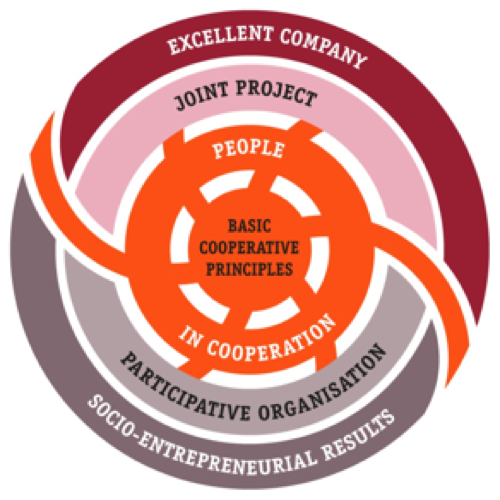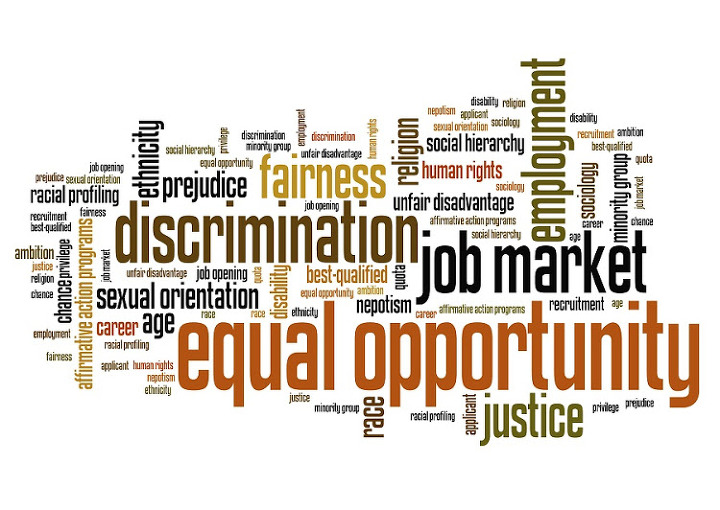Economic inequality and church teaching is an issue many find difficult to accept. The teaching of the Catholic Church is provoking a lot of static from many sectors of society and also from the Christians. The Church sees the free market as a new dictatorship and Economic Democracy is an answer.
The topic was featured in a recent issue of the Catholic Times. Why is the income gap between the rich and the poor widening? One of the big reasons for the dissatisfaction in society is the economic roots being planted. The economy can be thought of as irrelevant to religion, but it is a serious matter in the life of God's people. It affects greatly the human life of 99% of the population excluding the top 1%.
Korea entered the manufacturing-oriented industrial society during the Park Jung-hee regime. Korea, which achieved rapid economic growth, naturally changed its structure as a service-oriented post-industrial society through the 1990s. Due to the difference in productivity between the manufacturing and service industries, the latter lagged behind.
The Korean loans to industry were not economically wisely made and were not able to overcome the foreign exchange crisis. On November 21, 1997, Korea filed a bailout with the IMF. The IMF demanded a tightening economic operation (high-interest rate) and structural reforms. The economic recession intensified and more than 10,000 companies went bankrupt. At the time, the economic growth rate was -5.5%. However, Korea, which recovered through the efforts of all the people, was freed from the 'IMF system' in August 2001, repaying the bailout.
The Korean economy is a neoliberal market economy. Neoliberalism is an economic system that criticizes the state's intervention in the market and places importance on the functioning of the market and free activities of the private sector. The 'money makes money' structure guarantees the free pursuit of capital, and is criticized as the cause of inequality.
The Catholic Church is concerned about the unequal economy caused by the neoliberal market economy. If the top 1% has the majority of wealth, and 99% of the poor continues as is, we have the causes of polarization in almost all areas: politics, society, and culture. Pope Francis also called this polarization a 'new dictatorship' in The Joy of the Gospel and warns that the deepening of the polarization goes against the common good.
"While the earnings of a minority are growing exponentially, so too is the gap separating the majority from the prosperity enjoyed by those happy few. This imbalance is the result of ideologies which defend the absolute autonomy of the marketplace and financial speculation. Consequently, they reject the right of states, charged with vigilance for the common good, to exercise any form of control. A new tyranny is thus born, invisible and often virtual, which unilaterally and relentlessly imposes its own laws and rules" (#56).
Regarding the neoliberal market economy, the Catholic Church suggested an alternative direction called 'economic democracy'. In the second Vatican Council document: The Pastoral Constitution on the Church in the Modern World, 'right economic development' should not be left in the hands of a handful of people with excessive economic power, but should serve human beings. Even Pope Benedict XVI does not rule out the pursuit of profit in the Encyclical God is Love but supports ethical business activities that use the profit for greater social purposes in civil society, referred to as the 'citizen economy' or 'community economy'
The article concludes with the example of the Mondragon Cooperative in Spain. A company that consistently creates new employment and stable growth without a single layoff. It can't be explained by the neo-liberal market economy logic and it began 64 years ago.
The Mondragon Cooperative is operated with trust and solidarity. All members, regardless of the number of their contributions, exercise their intentions on important matters, such as selecting a board of directors and appointing management by exercising one vote per person. When an important issue arises regarding the union's policy or direction, the union communicates with the members from a long-term perspective and work towards a consensus.
It's not competition, but trust and solidarity that is the answer. It's the image of the early church community recorded in the Bible. Mondragon's example teaches us that we can hope to pursue the building of the kingdom of God together with trust and solidarity.




